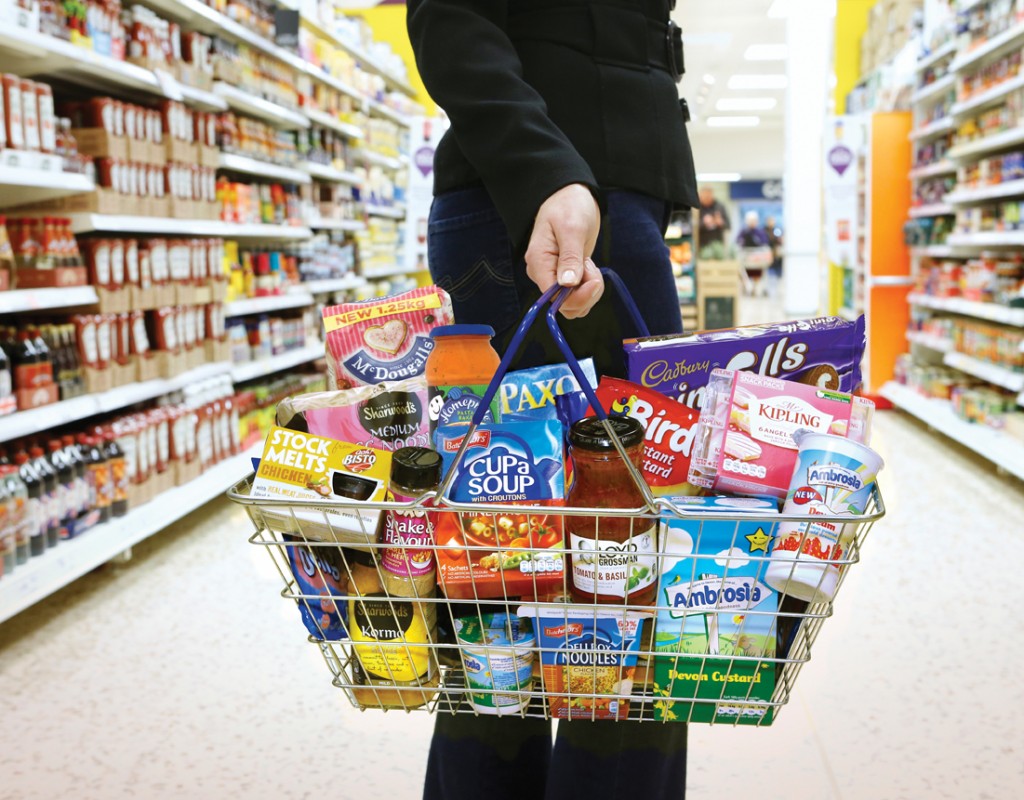Aldi has been named the cheapest supermarket in the UK for the month of December, and has taken the title for 2023 – notching up a hat-trick of victories.
The budget supermarket was also named the UK’s cheapest a record 11 times in 2023, helping shoppers save the most money on their weekly grocery bills.
It was beaten just once by rival Lidl for the month of October, but overall, consumer champion Which?’s annual survey revealed Aldi was officially the cheapest in 2021 and 2022.
Aldi and Lidl fought hard for the crown, with the price difference between a basket of goods standing at an average of just £1.33 across the year.
For a typical December shop, Which? compared the prices of 43 popular groceries including Cathedral City cheese, chopped tomatoes, apples and milk.
At Aldi, shoppers paid £74.83 on average, compared to £76.74 at Lidl.
At the other end of the scale, Waitrose was found to be the most expensive – by £20 as an equivalent basket cost £94.94.
When it came to the traditional ‘big four’ supermarkets, Asda came in cheapest at £84.41, followed by Sainsbury’s (£84.54) and Tesco (£84.86). Meanwhile, a comparable basket from Morrisons cost £87.24.
Julie Ashfield, managing director of buying at Aldi, said: “We’re absolutely delighted to be named the Cheapest Supermarket of the Year for a third year running. We are committed to providing shoppers with the best quality products at the lowest prices and it’s great to have that officially recognised by a highly respected consumer champion, such as Which?.
“As we head into 2024, our promise to our customers remains the same – they will always get the UK’s lowest prices at Aldi.”
Which supermarket is cheapest for a big trolley shop?
Which? also compares the cost of a bigger shop – a trolley of 131 items, including the original 43 used in the basket sample.
It includes more branded groceries, such as Bird’s Eye frozen garden peas and McVitie’s biscuits. But as such, it does exclude the budget German retailers (Aldi and Lidl) as they don’t always stock branded goods.
At Asda, the trolley came to £326.77, solidifying its position as the cheapest supermarket for a big trolley shop – a title it’s held every month since January 2020, except for July 2023, when Morrisons slipped into the lead. In December, Asda was followed by Morrisons at £336.41. Ocado took third place at £346.23. Again, Waitrose was the most expensive at £367.79.
Customer loyalty
Which? said 2023 “was the year of the loyalty card” with retailers ramping up their efforts to keep customers coming back through their doors. It added that the increased emphasis on loyalty pricing “appears to have pushed up average prices” for non-members.
Tesco runs its Clubcard Prices, while Sainsbury’s rolled out Nectar prices last year. Meanwhile, Morrisons More re-launched last year allowing customers access to lower prices.
However, as part of Which?s analysis last month, Sainsbury’s was the second priciest for the third month in a row for those shopping without a loyalty card, followed by Tesco.
Indeed, as part of Sainsbury’s trading statement for the 16 weeks to 6 January 2024, it reported Q3 grocery sales up 9.3%, as “customers continue to recognise the consistent improvement of our value offer, with our prices improving again versus competitors through the quarter, supported by Nectar Prices on more than 6,000 products”.
Sainsbury’s reported that for the first time it offered a festive roast through Nectar Prices, feeding six for less than £3 per person which it claimed was “our best value ever”.
Further, Nectar participation reached 90% on an £80 weekly shop during the quarter with Nectar Prices “helping customers to save £16 on average during Christmas week”.
Which? also looked at food price inflation, with its tracker revealing food and drink inflation dipped to 9.6% in the three months to 30 November 2023. This is down from 11% in October, and significantly down from 17% in the three months to April 2023.
By product, biscuits and chocolate had the highest level of inflation in the quarter to November (16% each).
Meanwhile, food prices in the three months to the end of July 2023 were 25.6% higher than the same period in 2021.





